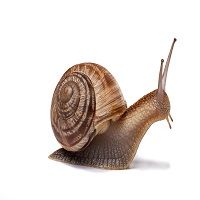Article
Snails May Be Key in Warding off Schistosomiasis
Author(s):
For patients with schistosomiasis, Oregon State University (OSU) and Universite de Perpignan Via Domitia investigators claimed a species of snail resistant to the disease-causing parasite could provide worthwhile treatments.

For patients with schistosomiasis, Oregon State University (OSU) and Universite de Perpignan Via Domitia investigators claimed a species of snail resistant to the disease-causing parasite could provide worthwhile treatments.
Native to Africa, the disease now affects 200 million people in more than 70 countries. Originally experiencing gastrointestinal difficulties, schistosomiasis sufferers’ condition could escalate and result in liver damage, kidney failure, infertility, and bladder cancer, according to an OSU statement.
Spread through a parasitic flatworm known as Schistosoma mansoni, the transmission route is circular with snails being infected in the process. While people who are infected typically live in unsanitary conditions, aquatic snails were also considered integral in halting the cycle, the OSU release noted.
Reported in PLOS Genetics, the team highlighted Biomphalaria glabrata, a naturally resistant Caribbean snail that has 15 genes of interest called the Guadeloupe Resistance Complex (GRC). Through RAD genotyping, the authors found “[a] dominant allele in this region [which] conveys an 8-fold decrease in the odds of infection.”
With only one medication — praziquantel — currently available to treat schistosomiasis, the researchers believed these results could facilitate the creation of novel medications since praziquantel resistance is a common occurrence. Moreover, they believed these genes could be implanted into types of snails that typically encounter and are infected by the parasite.
Furthermore, the team highlighted that the GRC resembles other animal’s genes which manage their immune systems.
“These genes are the type that, in other animal species, help to recognize pathogens and trigger an immune response,” Michael Blouin, a professor of integrative biology in the OSU College of Science said.“This is important new information. With further research we’ll learn more about the exact genetics and molecules that are involved as the parasite interacts with the host.”


